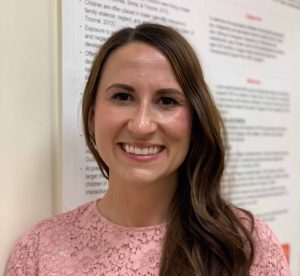
Foundations for a Restorative Approach: Health Care Harm and Wellbeing, a new UBC Okanagan micro-credential course answers the urgent call from health care leaders across BC to shift towards a more holistic and healing approach to address health care harm and promote wellbeing in our health care system.
“A Restorative Approach is respectful and relational – it restores healing and raises understanding, which is critical for patient safety and quality care in today’s health care system. UBCO’s Foundations for a Restorative Approach course will help push us toward building a more respectful environment for quality care, which aligns with Health Quality BC’s commitment and purpose – to improve health care quality across British Columbia.” —Christina Krause, Chief Executive Officer, Health Quality BC
The current approach to address health care harm tends towards the defensive and adversarial, does not adequately consider context or complexity, and may re-traumatize all involved. By applying a restorative lens we can uncover the systemic roots of harm and illuminate the connection between individual experiences and larger structural issues to catalyze change within the health care system.
“Understanding how a restorative approach fits within an individual and organizational response to healthcare harm is invaluable learning for any healthcare professional or administrator. This is learning that has the potential to truly transform our transactional processes into something that is centred around the needs of patients/clients and providers. There is a better way, and learners from this program will be well-positioned to guide us.” —Shari McKeown, Director, Patient Care Quality, Safety & Accreditation, Interior Health
This approach acknowledges the interdependence and interconnectness of people, systems, and structures. It recognizes the importance of relationships where wellbeing is deeply intertwined within the quality of relationships.
“I believe the restorative approach to healing from harm is critical to the health and well-being of patients, families and providers. We know that the ‘unfinished business’ of conversations left unhad or questions left unasked continue the pain and trauma as much as the event itself. Coming together in a safe and supported way to express apology and commit to learning is restorative for all parties and in fact is the only way to improve the system for the next patient and create some safety for the next encounter for the patient and family who was harmed. Healing happens for the provider as well, as long as hearts and minds are open.”—Kathy MacNeil, Chief Executive Officer, Island Health
The course is founded on the work of scholars, such as Dr. Jennifer Llewellyn, Professor of Law, and Chair in Restorative Justice at the Schulich School of Law. She has advised governments and NGOs including the South African Truth and Reconciliation Commission, the United Nations and the Assembly of First Nations and Canadian Truth and Reconciliation Commission on the response to Residential School abuse.
In the micro-credential course, participants will apply the restorative approach to identify opportunities, analyze issues, and design principle-based strategies tailored to their context. This micro-credential is a strategic investment for healthcare professionals seeking to committed to positive change in how we address harm and promote wellbeing.
Learning outcomes include:
- Gain a comprehensive understanding of a restorative approach grounded in and guided by relational principles;
- Determine how a restorative approach applies to your work with attention to its potential to address injustices and inequalities of access and inclusion in health and other social care settings;
- Analyze and better understand systemic, structural and relational patterns and impacts related to harm and wellbeing in health and other social-care contexts;
- Assess existing policies and processes based on a restorative approach;
- Explore the application of a restorative approach to organizational culture with particular attention to the development of policy and processes; and
- Identify opportunities and design principle-based restorative approaches in your day-to-day practice.
Learn more about the course and apply for Foundations for a Restorative Approach: Health Care Harm and Wellbeing before March 13. The first course offering will be comprised of a cohort of 20 students and will run from March 20 to May 29.
If you have any questions on the course, please email Dr. Nelly Oelke (Nelly.Oelke@ubc.ca) Professor in the School of Nursing, UBC Okanagan.

 In her doctoral longitudinal study, Jelena retained 99% of a sample recruited from Calgary community organizations providing various services, such as support after experiences of family violence. Since comparable studies have reported 40% attrition, Jelena led a
In her doctoral longitudinal study, Jelena retained 99% of a sample recruited from Calgary community organizations providing various services, such as support after experiences of family violence. Since comparable studies have reported 40% attrition, Jelena led a